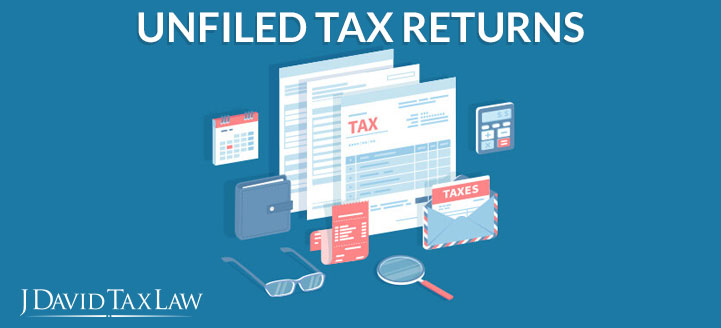
Unfiled Tax Returns & CP59 Notices
On April 15th individuals who have a filing requirement must file their personal income tax returns with the IRS for the prior tax year. An extension can be filed prior to April 15th, which extends the filing date for 6 months to October 15th. The extension extends the time to file the return but does not extend the time to pay the tax associated with the return. As such, penalties for the late payment of the tax and interest will begin to accrue on any unpaid tax starting on April 15th regardless of an extension being filed. The IRS also assesses a penalty for late filed returns in the amount of 5% per month the return is delinquent up to a maximum of 25%.
The income threshold at which an income tax return is required is based on the age and filing status of the tax payer. For example, a single taxpayer under the age of 65 had to file a 2018 return if their gross income was greater than $12000.
If a return is required but not filed the IRS will issue out a CP59 notice requesting that the taxpayer file their return. The IRS may eventually proceed to file a return on behalf of a taxpayer if the return remains delinquent. The IRS will use the income information reported to them by employers and other payors to determine the total income. They file the return, called a substitute for return, as a married filing separate or single filing status. Any deductions or credit the taxpayer may have been entitled to would not be claimed on the substitute for return, such as credits for dependents, business expenses or the cost basis of the sale of assets. Almost certainly, because of the lack of deductions and credits a substitute for return will report a much higher tax than had the taxpayer filed their own return.
Once the IRS has determined the tax due, they will issue out a Notice of Deficiency, which will outline the amount of tax the IRS has determined is owed and gives the taxpayer 90 days to file a petition with the tax court to contest the assessment.
Once the appeals rights contained on the Notice of Deficiency expire, the IRS will assess the tax and issue out a CP22 notice, which is the initial balance due notice. Even after the CP22 notice is issued, a taxpayer may file a return to replace the substitute for return to the IRS ASFR Unit. The IRS will examine the return filed and reduce the assessed tax based on the return filed.
If you have unfiled income tax returns please seek the assistance of a tax practitioner to file your delinquent returns before you are subjected to any additional late filing penalties and before the IRS assesses the tax on your behalf, which is sure to be substantially higher than the tax contained on your own return. The tax attorneys at J David Tax Law are experienced at working with the IRS to achieve successful tax resolution outcomes for our clients.
Click to call for a tax relief consultation.
Practice Areas
Call (877) 845-2460 To Receive a No-Cost, No-Obligation Consultation.
Contact Us
J. David Tax Law®, is an award-winning tax firm that represents individuals and businesses in all 50 states that have IRS, State, and State Sales tax debt. Using this form does not constitute an attorney client relationship.





